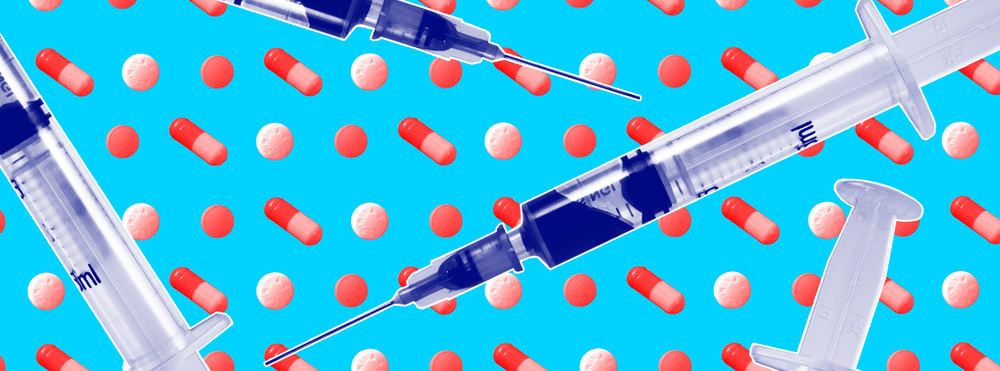Clinical Trials and Tribulations

After I thought I had solved it all, coming up with an easy way to eat better while lowering cholesterol, I couldn’t wait to share my idea with other doctors. They’d be so excited to have a straightforward, no-risk solution to improve cardiovascular health with food, not just medications.
Once again, my peers proved me completely wrong! Instead of congratulating me on coming up with a helpful alternative, they were extremely skeptical. “How do we know it works? How do we know it’s good for you?” they asked even after I shared some of my customers’ results. I think what they were really muttering was, “There goes Liz again, with her crazy food ideas!”
I now had to convince doctors that eating walnuts and chia and flax seeds might be good for you?! Really?!
Turns out I really did. Doctors understand medications. That’s all we’re taught to use. That means we’re only comfortable prescribing specific doses of something with clear instructions on how it should be used while having a good understanding of the expected results. None of that really applies to food.
Until Step One. We had addressed the dosing and instruction thing: our foods are formulated to deliver specific “doses” of nutrients and are “taken” twice per day. What we were lacking was an independent assessment of the expected results.
Scientifically rigorous clinical trials - like the ones used to test pharmaceuticals - are the only way to persuade physicians that something is appropriate to use as part of care, and that’s the level of proof my colleagues demanded. Now you’d think all the foods on store shelves have been tested this way already - after all they tell us they’re good for us. But that’s not the case. In fact, when food trials are done (and that’s very rare) they’re typically not done to the pharmaceutical standard.
For example, Glucerna’s claim of superior blood sugar control for its now-discontinued cereal offering was based on blood tests taken for 4 hours after people ate Glucerna cereal – and comparing those results to blood sugar levels after ingesting 2 bowls of corn flakes. Not exactly a fair fight given that corn flakes have a glycemic index equal to table sugar. Cheerios claim around cholesterol reduction was based on a study that had people not only eating Cheerios but also following a low-fat diet and increasing exercise.
Such artificial or muddled scenarios are not good enough for validating the health effects of drugs - or convincing doctors. In drug trials, you have to prove that a product makes a significant health impact of its own in a real-world setting. It’s a much higher bar.
So, of course, what we decided to do was to pursue this higher level of proof. We weren't going to stack the deck in our favor. We were simply going to ask people to go about their regular lives while eating our foods twice per day.
What I didn’t realize is that doing a real-world clinical trial in human subjects is about as easy as moving a gigantic boulder up a super steep, long hill. It’s probably why we remain the only food company that has done this level of research. It’s a laborious and complicated process with a lot of oversight that’s incredibly bureaucratic and often unnecessarily cumbersome (although many of the rules are there to ensure maximum safety and high ethical standards).
In the end, we proved that our foods work! Not a little – a lot. In fact, some of our participants got the same cholesterol results you’d expect to get with Lipitor. But it took FIVE YEARS to complete our trial.
This lengthy process can really pay off for drug companies. When a new medication is successful in a clinical trial, it gets to enforce its patent and is sold for crazy prices. Lipitor has made Pfizer nearly $95 billion from sales in the U.S. alone.
We may have had to jump through the exact same hoops as a drug company but since the study was done with food there was nothing to patent. Which means no giant payday at the end. I point this out not to complain but to emphasize how slanted the system is towards pharmaceuticals and how this can lead to unintended consequences.
Food companies have little incentive to make products with clinical trial-validated health benefits because there’s no money in it for them. So they focus on other ways to make a big profit – using less and less expensive ingredients or developing more and more hyperpalatable addictive products we want to eat again and again. This makes us sick – giving pharmaceutical companies another reason to invent and test new drugs, leading to big profits for them. Meanwhile, doctors keep writing prescriptions instead of using food as medicine – because drugs are what's been validated by high bar clinical trials.
When I founded Step One Foods, all I wanted to do was to help my patients. I didn’t know I’d have to disrupt my field of medicine to do it. Now that we’re the first food line demonstrated to lower cholesterol in a scientifically rigorous clinical trial, I realize we really are the first food company to usher change. And with every customer, with every order, and every physician recommendation, we are proving that there is, in fact, a different way -- a better way.
This blog wraps up our three-part story of the history of Step One. We share this story because we want you to know how dedicated we are to improving your health. Read part 1 here and part 2 here.
Read more about the journey to the clinical trial in these blog posts:
- Step One Clinical Trial Results
- Step One Achieves a Major Milestone
-
Step One Clinical Trial Paper: American Heart Association

Tested & Proven Results.
- Cardiologist formulated
- Supported by over 500 publications
- Clinically-proven, in a double-blind randomized trial with Mayo Clinic and The University of Manitoba
80% of participants lowered their cholesterol in just 30 days. With just two servings per day, Step One Foods offers a proven-effective way to naturally lower LDL (bad) cholesterol.
Get heart health tips and articles like this, delivered right to your email.
New articles every week.
You may also like...

The Next Super Food: How Pecans Help Lower Cholesterol

You don’t need to avoid foods with cholesterol…except for these



